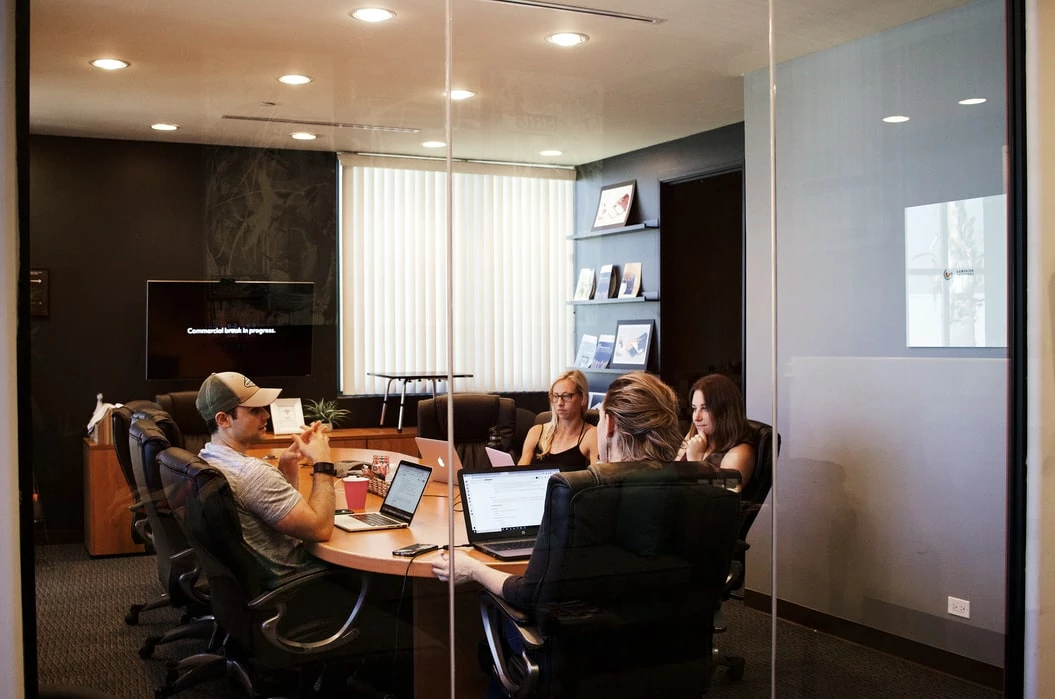
Partner Article
How to engage and motivate employees throughout the third lockdown
Blue Monday fell on 18th January this year but, given everything that’s going on, it’s fair to say that this year the shade was more royal blue than baby blue.
Usually, Blue Monday, which is said to be the most depressing day of the year, is a time when our moods drop as we move on from Christmas and New Year’s and get on with the year ahead.
However, this year is different. Alongside the end of Christmas celebrations, we are in a third national lockdown, a new variant of COVID-19 is spreading across the UK, there’s political unrest across the pond, and delays at the border.
All of the above is likely to exacerbate pre-existing problems with mental health in the UK. Two-thirds of Brits admitted to feeling lonely during the first lockdown in March and the Centre for Mental Health has predicted that up to 10 million people in England – almost a fifth of the population – will need mental health support as a direct consequence of COVID-19. In short, unfortunately there is plenty to be blue about this year.
With the above in mind, employees will be looking to employers to support and engage them during Blue Monday and beyond. But this is often easier said than done.
**The importance of recognising and responding to individual needs **
Employers shouldn’t assume that a one-size-fits-all policy works when it comes to supporting and engaging remote-working employees.
Throughout the pandemic, we’ve seen people respond differently to the stresses of the pandemic, the disruption it has caused, and the continual need to work from home.
Some may be content with working from home, while others may not feel comfortable working alongside the people they live with. They might have young children, or a home environment not suited to remote working.
Business leaders should recognise these differences and tailor the support they offer to suit individual needs. This could be as simple as creating a virtual hub for people to work alongside other team members to help boost team spirit. During the pandemic, we’ve all missed out on the socialisation that humans crave, and by adopting a mindset focused on the individuals within a team, business leaders will show that they care about their employee’s wellbeing.
**Why you should consider a long-term employee reward and recognition programme **
Business leaders must remember that engaging and motivating employees doesn’t stop once Blue Monday has passed.
Particularly in these unsettling times, it can be easy for employees to lose focus or for their moods to slip.
To counter this, businesses should consider a long-term employee reward and recognition programme to keep workers engaged and motivated. Setting up a reward scheme is a great way to boost satisfaction and productivity among your employees, yet, despite this, our recent whitepaper, which surveyed 2,000 employees across the UK, found 22% said they’d never received a reward from their employer.
Part of this resistance is down to business leaders incorrectly believing that reward and recognition programmes have to involve financial benefits. In fact, businesses are recommended to avoid simply dishing out cash bonuses. It’s unlikely to drive the type of long-lasting positive sentiment and engagement employees are after, as cash rewards are often lost in the paycheck and spent on trivial purchases.
**Why business leaders should incorporate experiences into their reward scheme **
Instead, business leaders should look to incorporate experiences into their reward and recognition programme, including virtual experiences which can be enjoyed even in spite of the current social restrictions.
This is a trend we’ve seen a lot of employers explore, and it’s likely to be welcomed by employees. Our whitepaper found that 75% employees believe gift cards and vouchers make them feel valued or very valued. This was followed by own-choice rewards (71%) and team treats (64%). It’s easy to see why employees are interested in receiving gift cards and virtual experiences, over cash bonuses. Virtual at-home experiences – such as virtual gin tasting or online escape rooms – can create memories among a workforce, which in turn, improves team morale.
Blue Monday and the days that follow will be a trying period for all of us, as we look to re-establish some sense of normality. At this time, it is essential that employers continue to engage and motivate their employees and show that they value the hard work they’ve put in during this unprecedented time. Reward and recognition programmes which involve virtual experiences are a great way to do this: not only will they improve team morale, but they will also create memories and give your team something to do during these long, cold winter nights.
This was posted in Bdaily's Members' News section by Danni Rush .








 Raising the bar to boost North East growth
Raising the bar to boost North East growth
 Navigating the messy middle of business growth
Navigating the messy middle of business growth
 We must make it easier to hire young people
We must make it easier to hire young people
 Why community-based care is key to NHS' future
Why community-based care is key to NHS' future
 Culture, confidence and creativity in the North East
Culture, confidence and creativity in the North East
 Putting in the groundwork to boost skills
Putting in the groundwork to boost skills
 £100,000 milestone drives forward STEM work
£100,000 milestone drives forward STEM work
 Restoring confidence for the economic road ahead
Restoring confidence for the economic road ahead
 Ready to scale? Buy-and-build offers opportunity
Ready to scale? Buy-and-build offers opportunity
 When will our regional economy grow?
When will our regional economy grow?
 Creating a thriving North East construction sector
Creating a thriving North East construction sector
 Why investors are still backing the North East
Why investors are still backing the North East